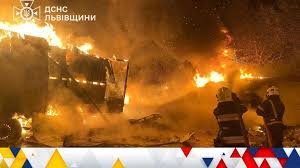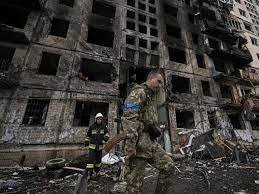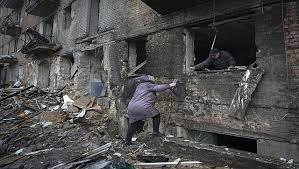In a significant boost to military aid, the UK has announced that it will send an additional 650 short-range missiles to Ukraine. This new package of aid is part of a broader strategy to strengthen Ukraine’s security against the ongoing Russian aggression. The announcement comes at a time when Ukrainian President Volodymyr Zelenskyy has made a strong appeal for more international assistance at a crucial defence summit held at Ramstein Air Base in Germany.
A Crucial Appeal for Support
At the Ramstein Summit, President Zelenskyy stressed the urgency of the situation in Ukraine’s eastern Donetsk region, urging allies to step up their support. With Russian forces intensifying their operations, Zelenskyy’s appeal highlights the critical need for continued military assistance to repel the advancing troops. His call for additional assistance underlines the challenging conditions faced by Ukrainian forces on the ground.

UK commitment to Ukraine
UK Defence Secretary John Healey is set to unveil a £162 million package, which includes the provision of additional Lightweight Multirole Missiles (LLM). Healey said this new aid package represents a significant boost to Ukraine’s air defence and reflects the UK’s commitment to supporting Ukraine in its struggle against Russian aggression.
“This new package will provide a significant boost to Ukraine’s air defence, and it shows that the UK is stepping up its support at these critical times,” Healey stressed.
The reality of military aid
Despite the substantial aid, there are concerns about the adequacy of the support. Prof Michael Clarke, former director-general of the Royal United Services Institute, warned that new supplies could run out quickly given the rapid pace of the conflict. He highlighted that Ukraine needs “more of everything” due to the Russian military’s continuous and heavy bombardment.
In addition to the new missile supplies, the UK has pledged £12.7 billion to Ukraine since the start of Russia’s invasion in February 2022, with £7.6 billion allocated specifically for military aid. Prime Minister Sir Keir Starmer has pledged continued support, promising £3 billion annually for as long as needed.

Impact of recent attacks
The urgency of the new aid package is underlined by recent events, including a devastating Russian missile attack on the city of Poltava, resulting in at least 51 casualties. The attack has intensified calls for more robust international support to help Ukraine defend itself and mitigate the impact of ongoing attacks.
Call for long-range capabilities
During the summit, President Zelensky also called on Western allies to authorise the use of long-range missiles for strikes within Russia. He argued that such capabilities are essential to end the conflict and put pressure on Russian forces. Zelensky’s request highlights a wider debate about the limits of military assistance and the strategic implications of providing long-range weapons.
The UK has previously confirmed that weapons provided to Ukraine are for self-defence within its internationally recognised borders. However, recent developments, including Kiev’s cross-border incursions, have raised questions about the scope of the permissible use of such weapons.

The role of international allies
Ukraine’s biggest supporter, the United States, has also committed additional assistance, including $250 million (£189.9 million) in military aid. The move aligns with the wider international effort to support Ukraine’s defence and underlines the global commitment to counter Russian aggression.
The wider context
The ongoing conflict in Ukraine is part of a larger geopolitical conflict, which has significant implications for international security and stability. The support from the UK and other allies is not only a response to immediate military needs, but also a strategic effort to address wider geopolitical concerns.
The UK’s decision to send additional missiles is an important step in strengthening Ukraine’s security and signalling continued international support. However, the situation is still fluid, and the effectiveness of this assistance will depend on a variety of factors, including the ability to sustain support and adapt to the evolving dynamics of the conflict.
Conclusion
As the conflict in Ukraine continues to escalate, the international community’s response will play a key role in shaping the outcome. The UK’s additional missile supplies represent a significant contribution to Ukraine’s defence efforts, but they also highlight the ongoing challenges and complexities of supporting a nation engaged in a long and intense conflict. The coming weeks and months will be crucial in determining the effectiveness of this support and the broader impact on the geopolitical landscape.
